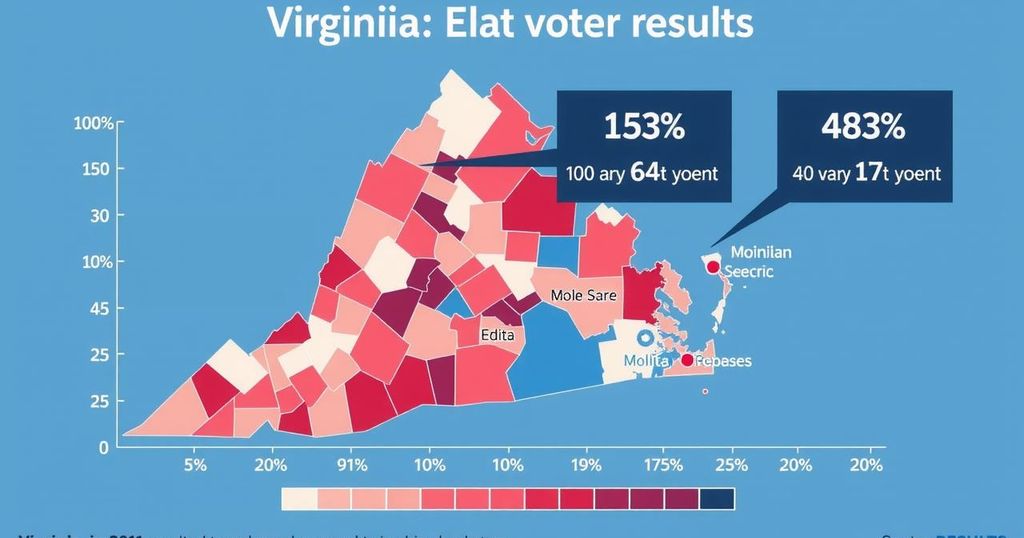Virginia’s recent special elections did not result in significant changes in voter sentiment, with Democrats maintaining their legislative majority. The results, particularly in two left-leaning districts, indicate continued division as the state approaches more critical elections in 2025. Observers expect heightened competition as candidates prepare for the gubernatorial race amid a closely divided legislature under Governor Glenn Youngkin’s final term.
The recent special elections in Virginia did not yield any unexpected results, reinforcing the existing political landscape within the state. Democrats managed to maintain their slender majority in the statehouse by securing victories in two progressive districts, despite Republican hopes of gaining control and leveraging recent national electoral successes. The state remains a focal point for political analysis, especially as it prepares for a gubernatorial election and contends with a divided legislature during the final year of Governor Glenn Youngkin’s term.
The special elections act as a precursor to the 2025 gubernatorial race, which will encompass all 100 seats in the House of Delegates and the executive branch. Political scholars emphasize that these elections, though important, serve as preliminary indicators, while the upcoming governor’s race will provide more substantial insights into voter sentiment. Notably, the Democratic turnout amidst adverse weather conditions calls attention to the ongoing engagement of the electorate as they prepare for future electoral contests.
The potential for significant monetary influx from national parties underscores the strategic importance of Virginia in the national political arena. With candidates from both sides already declaring their intentions to run for governor, including Republican Lt. Gov. Winsome Earle-Sears and former Democratic U.S. Rep. Abigail Spanberger, the competitive landscape is set to intensify as election season approaches.
Virginia’s political scene is closely scrutinized due to its unique timing of elections, occurring in odd-numbered years, typically right after presidential races. This unusual schedule positions Virginia as a potential bellwether for national voter sentiment. The state is significant as it carries implications for broader political narratives, particularly following the pivotal Trump-era shifts in voter behavior and party dynamics. The presence of a closely divided legislature adds to the complexity of governance and upcoming electoral strategies.
In summary, the recent special elections reaffirmed the existing political balances in Virginia, with no major shifts in voter sentiment observed. As the state approaches its next gubernatorial election amidst a divided legislature, the implications for both parties are profound. The dynamic environment invites scrutiny as candidates vie for control and seek to shape the political narrative ahead of significant elections in 2025. Political analysts anticipate that these upcoming contests will be critical in understanding both state and national voter inclinations moving forward.
Original Source: apnews.com






